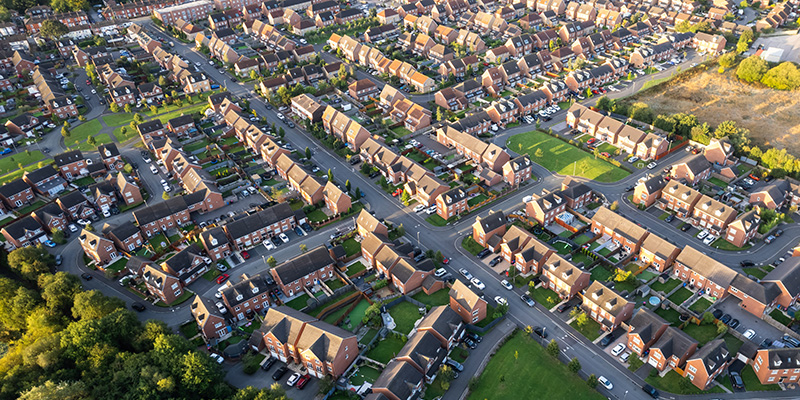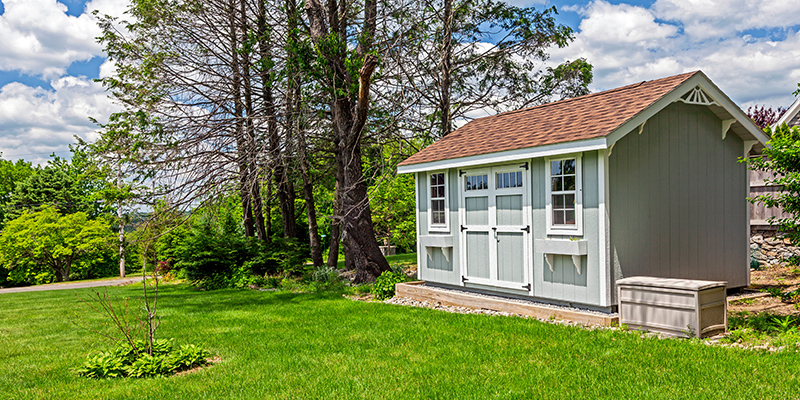Developer Controlled Community: How Much Control Do Developers Have?

People are more used to the idea of a resident-controlled homeowners association that they often forget about the role of the developer. But, it is still quite common to see a developer-controlled community.
Browse By Category
Sign up for Our Newsletter
People are more used to the idea of a resident-controlled homeowners association that they often forget about the role of the developer. But, it is still quite common to see a developer-controlled community.
What Is a Developer-Controlled Community?
A homeowners association does not always start out in the control of residents. In fact, more often than not, HOAs begin under the careful watch of developers. Developers are the ones that construct homes in the community. And, when there are only a few to no homeowners, the developer typically remains in charge.
The developer establishes the HOA by filing the necessary documents with the Secretary of State or the county recorder’s office (or both). In most states, associations are organized as nonprofit corporations, so they will need Articles of Incorporation. In addition to this, the developer also creates other governing documents, including the Bylaws and the Declaration of Covenants, Conditions, and Restrictions (CC&Rs).
While the community is under developer control, the developer is also responsible for establishing an operating budget with reserve funds and filing the appropriate taxes. The developer usually subsidizes expenses until there are enough homeowners to start collecting dues. It may also choose to hire an HOA management company to help run the community.
How Does a Developer-Controlled Community Form?
Developer-controlled communities usually take form in three steps.
- Expansion Project. First, the developer will begin a community expansion project. At this point, the developer will search for land to develop, conduct a financial study, and then buy the property.
- Pre-development. The second step involves obtaining the proper permits and approvals to begin development. This is also when a lawyer or law firm will start writing the governing documents of the association.
- Formation. The last stage is when the developer-controlled community emerges. This is when the developer will form a nonprofit corporation to establish rights, ownership, and obligations. At this point, the developer still owns everything.
Understanding the Authority of Developers in an HOA
 A set of board members manages homeowners associations. When most of the lots haven’t sold, though, the developer usually controls the board as well. The developer appoints people to sit on the board and make decisions. In terms of votes, the developer gets weighted votes. In other words, they retain more voting power per lot than every homeowner.
A set of board members manages homeowners associations. When most of the lots haven’t sold, though, the developer usually controls the board as well. The developer appoints people to sit on the board and make decisions. In terms of votes, the developer gets weighted votes. In other words, they retain more voting power per lot than every homeowner.
When the community is under the control of the developer, it usually means not enough homes have sold yet. During this time, homeowners don’t really get involved as much in the management of the HOA. While homeowners can voice their concerns, they don’t have real power to influence decisions because the developer controls the board.
Of course, not all developers operate this way. Some developers proactively seek input from homeowners. If a buyer is considering purchasing a home in a development, it is worth checking if it is still controlled by the developer and what kind of developer is in charge.
The best kind of developer is one that puts the community’s best interests first. A developer that makes smart financial decisions and seeks to involve homeowners in any way they can. This type of developer is one that homeowners will feel more comfortable in – a developer they can trust.
But, keep in mind that a good developer won’t just set budgets and dues low for the sake of it. When financial standards are not realistically met, the association could end up suffering in the end. Once the developer turns over the HOA to the homeowners, it will be difficult to crawl out of the financial trouble.
Can Developers Do Whatever They Want?
Regardless of a developer-controlled or resident-controlled HOA, board members must always uphold their fiduciary duties. If the board fails to do so, homeowners can take legal action.
This means that the developer should still follow the stipulations within its governing documents. The problem with this is that developer-controlled communities can usually amend the documents easily because they control the board and hold more voting power.
Additionally, with the help of a lawyer, the developer is the one who drafts the initial governing documents in the first place. This means that the developer can bear more influence on the association’s bylaws and CC&Rs. It essentially gives the developer the power to amend the documents in a way that works in their favor. For instance, the developer may give himself more voting rights until the HOA is handed over to the homeowners.
While most states do have statutes that govern homeowners associations, they usually don’t specifically set requirements for developers prior to transition. Florida Statutes Section 720.3075, for instance, only lists prohibited clauses that apply after the turnover of the HOA. As such, developers tend to have a lot of freedom in this respect.
Homeowners can try to get more involved in the affairs of the association to help keep it on the right path. One way to do this is to suggest forming an advisory committee consisting of homeowners. Homeowners should also attend open board meetings to understand what is going on in the community.
In some cases, state law or the governing documents will require that the board have one or two homeowners in position once a certain percentage of homes have been sold. As such, even if not all homes have sold yet, homeowners can have some people representing their interests.
Making the Transition from Developer to Homeowners
Communities don’t tend to remain under developer control forever. There will eventually come a time when the developer must hand over control of the community to the homeowners. When that happens, the homeowners will need to elect board members and start running the association themselves.
But, when does the transition take place?
It really depends on what the association’s governing documents say. The declaration or bylaws will typically contain the requirements for transition and indicate when the developer’s period of control should end. For example, the documents may say that transition should take place once 75% of the homes have been sold.
Sometimes, instead of the percentage of homes sold, the documents will specify a timeframe. For example, the documents may say that transition should take place after 3 years. Other times, it is a combination of both the percentage requirement and the time duration requirement.
Apart from the governing documents, homeowners should also look to state laws. In some states, the statutes will specify when a developer should transfer association control. For instance, Florida Statutes Section 720.307 lists the events that may trigger the transition, including a time frame of 3 months following the sale of 90% of the parcels.
Once the community meets the requirements for transition, the homeowners can then proceed to elect their own HOA board. The board will now consist of homeowners, who can make decisions for the association.
At this point, the board should review the association’s governing documents and see where change needs to happen. Some provisions may be outdated or not beneficial to the association because they were worded in a way that benefitted the developer. It is also a good idea to remove any declarant provisions since they no longer apply.
Reasons for Long Periods of Developer Control
 There are some instances where a community may remain under the control of the developer for an indefinite period. One example is when a community has complicated construction plans. This is common in luxury communities and retirement homes. The more complex the plans are, the longer it will take to complete construction. Because of this, some developments remain under developer control for 7 years or longer.
There are some instances where a community may remain under the control of the developer for an indefinite period. One example is when a community has complicated construction plans. This is common in luxury communities and retirement homes. The more complex the plans are, the longer it will take to complete construction. Because of this, some developments remain under developer control for 7 years or longer.
Sometimes, a community will have multiple phases. When one phase completes, that phase can transition to homeowner control. However, it will still usually be a part of a Master Community Association, which also oversees all other phases in the development.
Even after the transition, a developer may still hold some form of control over the association. If the CC&Rs and bylaws allow it, a developer can still retain a seat or two on the HOA board with the usual requirement of still owning property in the community. Some developers intentionally write a provision in the governing documents permitting this. This is a rare occurrence, though.
Risks of Developer-Controlled Communities for Homeowners
Homeowners bear certain risks when a developer remains in control of an HOA. If a developer cuts costs on materials and construction quality, homeowners will usually have a hard time holding the developer liable. Warranties only tend to cover the bare minimum, too. While homeowners can take legal action, winning isn’t a guarantee. Plus, lawsuits can be time-consuming and very expensive, leaving homeowners with more expenses on their shoulders.
A developer retains almost absolute control of the association. They usually hold a lot of power, with homeowners getting little to no say on anything. A developer can generally raise dues and increase HOA debt, amend the governing documents at will, and bear no accountability for any of these things.
As such, homeowners should strive to gain control of the association when possible. This will transfer the powers to the homeowners, who have more at stake than the developer.
Breaking Free from a Developer-Controlled Community
While most developers have the best interest of the community in mind, there are some that seek to rework the rules to benefit them. Therefore, it is important that homeowners push for a transition when the situation calls for it. Prior to that, homeowners should strive to gain some power by ensuring that fellow homeowners obtain a position on the board at the soonest possible time.
As for those who are still looking for homes to buy, it is imperative to first determine whether or not the property is subject to HOA rules. Buyers should always ask sellers to provide a copy of the association’s governing documents (if applicable). In doing so, they can make an informed decision.
RELATED ARTICLES:
- Robert’s Rules Of Order: Everything You Need To Know
- HOA Noise Rules: Can Homeowners Complain About Neighbor’s Party Noise
- The Hierarchy Of HOA Documents: Which Takes Precedence?
Trending Now
Related Article
Sign up for Our Monthly Newsletter
Sign up below for monthly updates on all HOA Resource
















